
loading...

Welcome to the world of VLSI (Very Large-Scale Integration) design! In this era of technological advancements, VLSI has emerged as a vital field that powers the development of modern electronic devices. With the demand for faster, smaller, and more efficient electronic systems growing rapidly, understanding the core concepts of VLSI design has become essential for aspiring engineers. Here, we will unravel the mysteries surrounding VLSI design and explore the core concepts covered in VLSI courses offered by FutureWiz Academy, a leading institution in the field.
VLSI design involves the creation of integrated circuits (ICs) that consist of thousands or even millions of transistors on a single chip. These circuits form the backbone of electronic devices, from smartphones and laptops to advanced medical equipment and automotive systems. VLSI design encompasses a range of disciplines, including digital design, analog design, system architecture, verification, physical design, and more.
Digital Design:
Digital design is the foundation of VLSI, focusing on the design and implementation of digital circuits. VLSI courses introduce students to various digital design methodologies, such as RTL (Register Transfer Level) design, FSM (Finite State Machine) design, and synchronous design. Students learn to design and optimize logic gates, arithmetic circuits, memory units, and other digital building blocks using hardware description languages like VHDL (Very High-Speed Integrated Circuit Hardware Description Language) or Verilog.
Analog Design:
While digital circuits are dominant, analog circuits play a crucial role in VLSI design. VLSI courses emphasize the understanding and design of analog components, such as amplifiers, filters, and voltage references. Students learn about transistor-level design, biasing techniques, and gain stages. They also gain hands-on experience in simulation tools to analyze and optimize analog circuit performance.
System Architecture:
System architecture focuses on the high-level design of complex VLSI systems. VLSI courses cover concepts like processor architecture, memory hierarchies, interconnects, and I/O interfaces. Students gain insights into trade-offs between performance, power consumption, and area utilization while designing system architectures.
Verification:
Verification is a critical aspect of VLSI design to ensure the correctness and functionality of complex circuits. VLSI courses provide an in-depth understanding of verification methodologies, including simulation, formal verification, and hardware/software co-verification. Students learn to write testbenches, perform functional and timing simulations, and debug circuit behavior.
Physical Design:
Physical design deals with the layout and placement of circuit components on a chip. VLSI courses introduce students to tools and techniques used for floorplanning, placement, and routing. Students learn about designing power and clock distribution networks, signal integrity analysis, and timing closure. They also explore advanced topics like Design for Manufacturing (DFM) and Design for Testability (DFT).
Advanced Topics:
VLSI courses often delve into advanced topics based on industry trends and research. These may include low-power design techniques, mixed-signal design, system-on-chip (SoC) design, and emerging technologies like 3D integration and nanotechnology. Understanding these cutting-edge concepts prepares students to tackle real-world VLSI design challenges and stay at the forefront of technological advancements.
Enrolling in a VLSI course at FutureWiz Academy offers several advantages to aspiring VLSI engineers:
In-depth Knowledge:
VLSI courses provide a comprehensive understanding of VLSI design concepts, equipping students with the skills needed to design complex circuits.
Hands-on Experience:
Students gain practical experience through lab sessions and project work, allowing them to apply their knowledge to real-world scenarios.
Industry Relevance:
VLSI courses at FutureWiz Academy are designed in collaboration with industry experts, ensuring that the curriculum remains up-to-date and aligns with industry requirements.
Networking Opportunities:
Students get the opportunity to interact with industry professionals, faculty members, and fellow students, fostering valuable connections and opening doors to future career opportunities.
VLSI design is an exciting and dynamic field that plays a crucial role in shaping our modern technological landscape. By understanding the core concepts of VLSI design through comprehensive courses like those offered by FutureWiz Academy, aspiring engineers can embark on a rewarding journey in this ever-evolving field. Whether you are fascinated by digital circuits, analog design, system architecture, verification, physical design, or emerging technologies, there is a VLSI course that can help you explore your passion and unlock a world of possibilities.
So, are you ready to demystify VLSI design and embark on an exciting career in this field? FutureWiz Academy is here to guide you on this transformative journey.
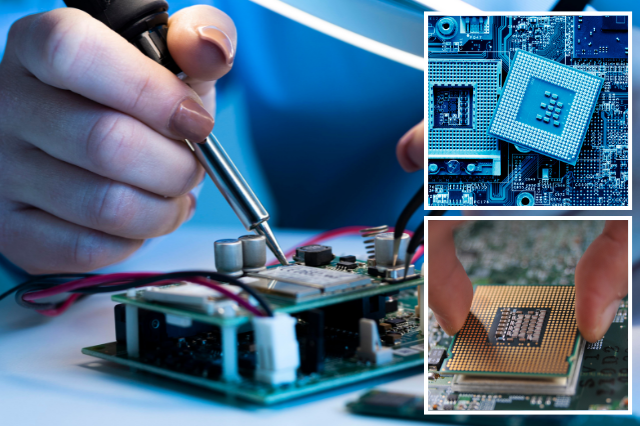 Verilog Essentials: Mastering the Fundamentals of Hardware Description Language
Verilog Essentials: Mastering the Fundamentals of Hardware Description Language
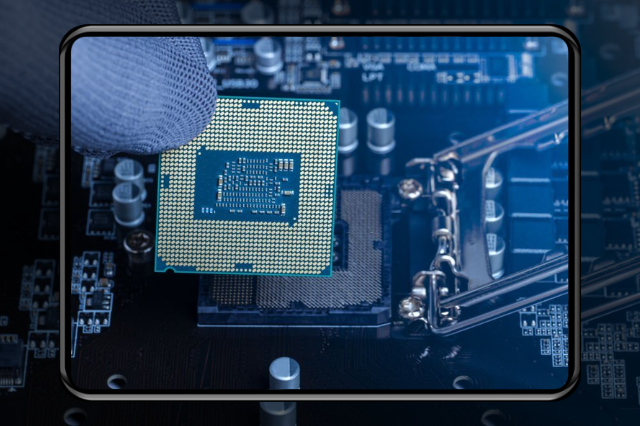 Unleashing the Power of System Verilog: A Comprehensive Guide for Aspiring Designers
Unleashing the Power of System Verilog: A Comprehensive Guide for Aspiring Designers
 Demystifying VLSI ch Design: Exploring the Core Concepts of VLSI Courses
Demystifying VLSI ch Design: Exploring the Core Concepts of VLSI Courses
 Basics of VLSI - An Ultimate Guide
Basics of VLSI - An Ultimate Guide
 Career Prospects After Completing A VLSI Course
Career Prospects After Completing A VLSI Course
 Top 5 Reasons To Take Up A Professional VLSI Course
Top 5 Reasons To Take Up A Professional VLSI Course
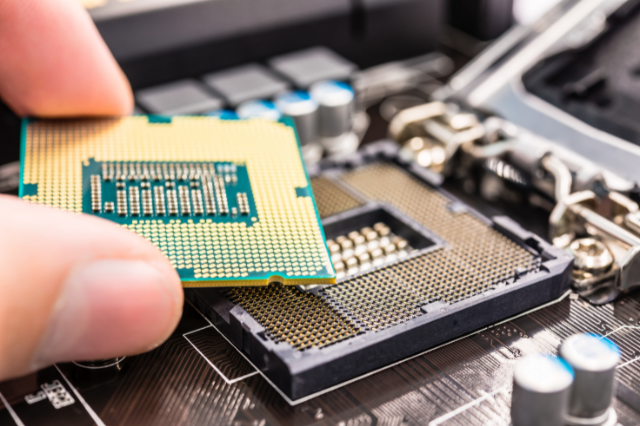 Mastering VLSI Design: A Comprehensive Guide To Understanding Complex Integrated Circuits
Mastering VLSI Design: A Comprehensive Guide To Understanding Complex Integrated Circuits
 Future-Proof Your Career With A VLSI Course: How Learning About Integrated Circuits Can Boost Your Job Prospects?
Future-Proof Your Career With A VLSI Course: How Learning About Integrated Circuits Can Boost Your Job Prospects?
 System Verilog: An Overview
System Verilog: An Overview
 Introduction to Hardware Description Language (HDL)
Introduction to Hardware Description Language (HDL)
 Unlock The Potential Of VLSI Design With An Integrated VLSI Course Online
Unlock The Potential Of VLSI Design With An Integrated VLSI Course Online
 Universal Verification Methodology:An Efficient Verification Approach
Universal Verification Methodology:An Efficient Verification Approach
 How to Write a Verilog Module for Design and Testbench
How to Write a Verilog Module for Design and Testbench
 What Are the Different Career Paths in the VLSI Industry?
What Are the Different Career Paths in the VLSI Industry?
 Skills required to establish a successful career in VLSI
Skills required to establish a successful career in VLSI Looking for online VLSI courses? Futurewiz can fulfill your upskilling needs!
Looking for online VLSI courses? Futurewiz can fulfill your upskilling needs!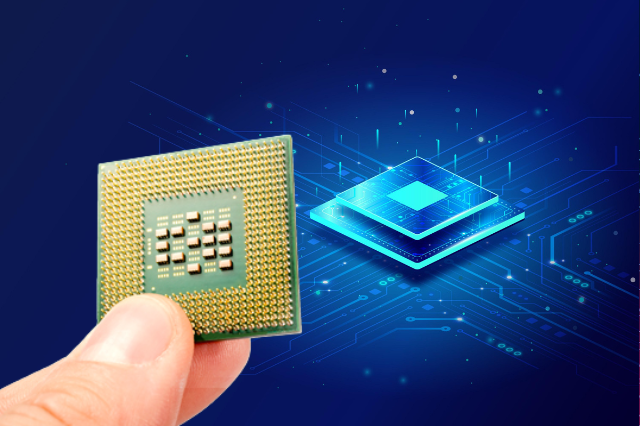 The Future Of VLSI- Get All The Latest Insights!
The Future Of VLSI- Get All The Latest Insights!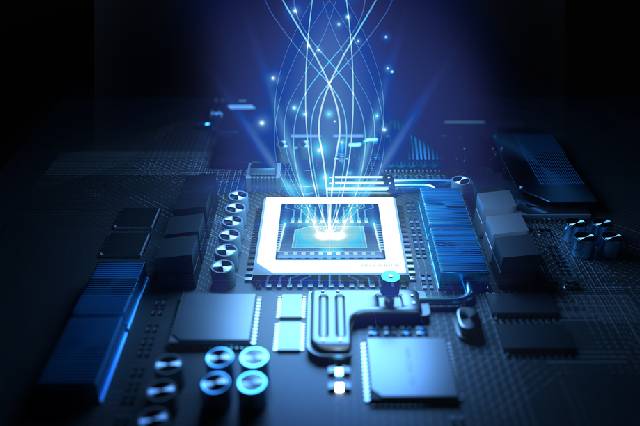 Super 50 Program For Advanced VLSI Design Training
Super 50 Program For Advanced VLSI Design Training Steps to Build Career in VLSI
Steps to Build Career in VLSI Similarities between C and Verilog
Similarities between C and Verilog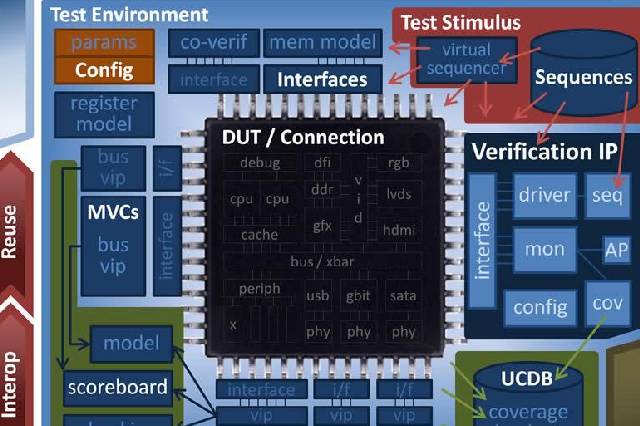 What is UVM - A High-level overview
What is UVM - A High-level overview



